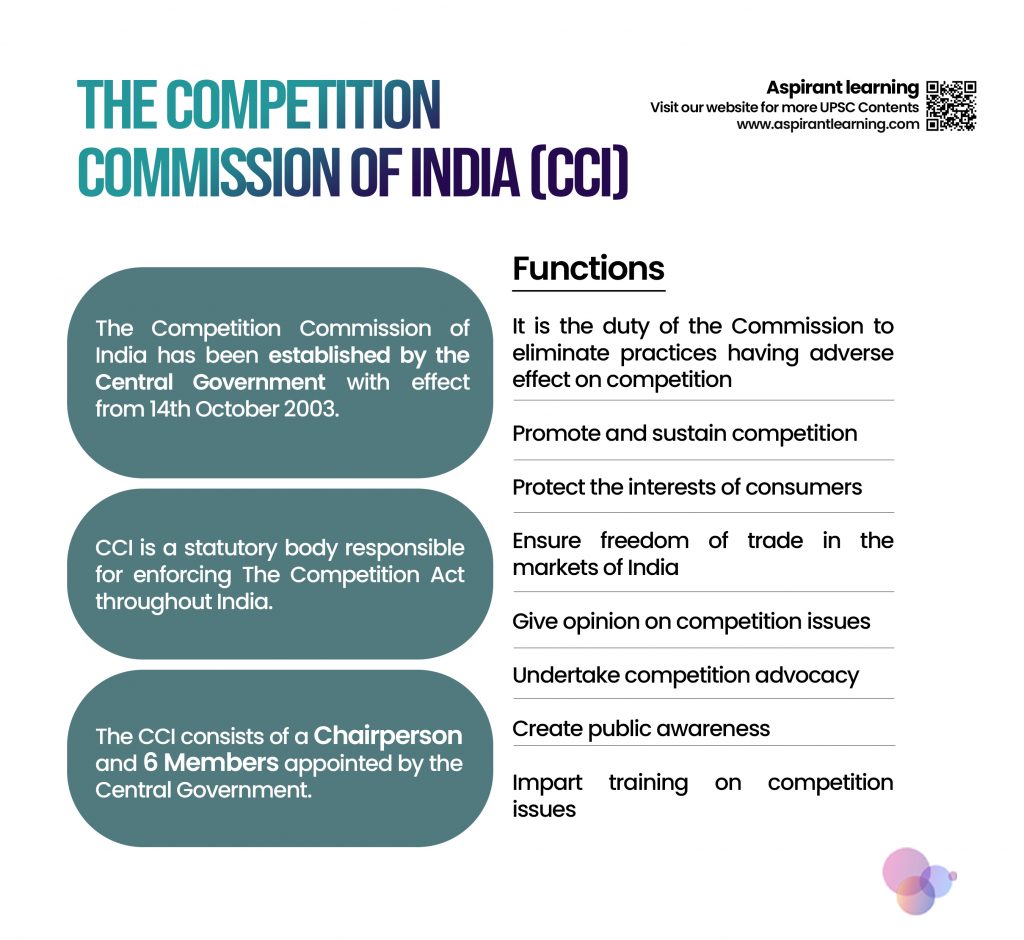News Highlight
Imposing Ex-ante Regulation on Digital Platforms is on the lines of the framework specified in the recently-enacted Digital Markets Act (DMA) of the European Union.
Key Takeaway
- The Parliamentary Standing Committee on Finance, led by Jayant Sinha, is expected to recommend the Ex-ante regulation of Big Tech.
- The proposed ex-ante regulation — “before the event” — the regulatory framework will supplement CCI’s ex-post — “after the event” — enforcement actions.
- The CCI was established under the Indian Competition Act of 2002 to protect and promote market competition and prevent practices that impede competition.
- One example is the EU’s Digital Market Act and “gatekeepers” who will enforce rules and regulations ex-ante to prevent anti-competitive practices.
- In India, the Competition (Amendment) Bill and its proposed amendments address some of these issues.
Digital Marketing
- What does the EU’s Digital Markets Act entail?
- The Digital Markets Act guarantees that these platforms act reasonably online.
- The Digital Markets Act is one of the cornerstones of the European digital strategy and the Digital Services Act.
- The European Commission will designate some essential platform service providers under the DMA as “gatekeepers” if they meet specific requirements.
- The designated gatekeepers will have six months to adhere to the DMA requirements after being designated.
- Why are ex-ante rules on digital services problematic?
- Ex-ante regulations that are poorly conceived and implemented have been shown to
- Impede an economy’s capacity for innovation.
- Decrease its capacity to catch up to its international rivals.
- Ex-ante regulations that are poorly conceived and implemented have been shown to

Issues with digital service ex-ante regulations
- One-size-fits-all strategy
- Operational models for technological platforms come in a wide range, and they also come with a variety of dangers.
- A one-size-fits-all strategy can favour some players at the expense of others.
- Effect on regulators
- Ex-ante frameworks can limit regulators’ regulatory flexibility.
- Utility of digital services
- Comparing the internet infrastructure layer with the content and application layers, which are seen as utilities, is not reasonable.
- Lack of evidence
- Reverting to a structure-based antitrust strategy by imposing ex-ante regulations without proof of anti-competitive impacts.
Way Forward
- Rushing to adopt exact solutions from other nations could work against India’s goal of developing a robust, efficient, and inclusive digital economy.
- In contrast, concentrating on safeguarding rivals may shield Indian customers from innovation, rivalry, and consumer choice in the long term.
Pic Courtesy: The Hindu
Content Source: The Hindu



